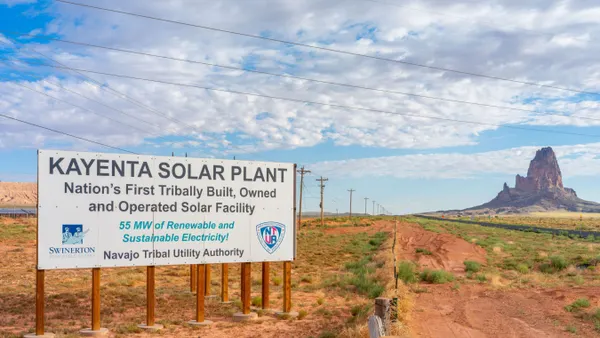Dive Brief:
- House Republicans are set to propose a bill amending the U.S. Environmental Protection Agency's coal ash rule to permanently determine that coal ash is not toxic, the Hill reports. The legislators say the determination would give more certainty to utilities about costs associated with the coal power byproduct.
- Republican members of the House Subcommittee on Environment and the Economy, chaired by Rep. John Shimkus (R-IL), have expressed concern that EPA’s rule could lead to increased litigation, uncertainty, and expense.
- The coal ash regulations, released before the holidays in December, did not designate coal ash as hazardous waste, to the chagrin of environmental and health advocates. They did, however, take steps to establish standards and enforcement mechanisms for coal ash management and disposal.
Dive Insight:
Republican's central issue with the coal ash rule, which stopped short of declaring coal ash as hazardous waste, is that it leaves the door open for a reconsideration of that designation, The Hill reports. The first rule targeting safe storage of coal ash was announced in December by the Obama Administration, and would put in place structural standards for storage facilities. The rule stopped short of declaring coal ash a hazardous waste, a move which disappointed environmentalists but saved coal-burning utilities billions of dollars.
Rep. David McKinley (R-WV), author of legislation in the 112th and 113th Congresses to address coal ash management, said “how many times must there be a final determination that coal ash is not hazardous?”
According to Chairman Shimkus, the final rule "lays out an entirely self-implementing program that will be enforced through citizen suits and will unavoidably lead to an unpredictable array of regulatory interpretations, as judges throughout the country are forced to make extremely technical compliance decisions that would be better left to a regulatory agency.”
"We still believe that a legislative solution that sets out minimum federal requirements and allows the states to develop enforceable permit programs to implement the standards, is the best approach to dealing with the regulation of coal ash,” said Shimkus.














